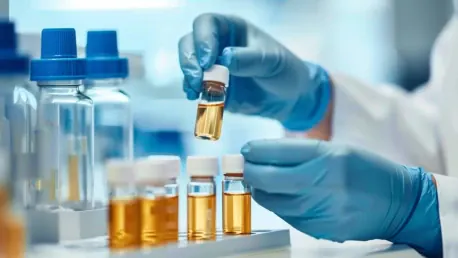Thailand’s biotechnology sector is undergoing a transformative shift, driven by strategic partnerships, cutting-edge innovations, and robust support for entrepreneurs. The Thailand Center of Excellence for Life Sciences (TCELS) is at the forefront of this transformation, spearheading initiatives to enhance global competitiveness, leverage natural resources, and improve healthcare outcomes. Central to this evolution is a focus on both localizing and globalizing Thailand’s biotech capabilities.
The Role of TCELS in Thailand’s Biotech Transformation
Leading Innovation Management
At the heart of Thailand’s biotech evolution is TCELS, an agency dedicated to fostering innovation and business capabilities. Under the leadership of Dr. Jittiporn Thammajinda, TCELS is implementing strategies to bridge the gap between research and commercialization. This approach involves nurturing startups and established businesses through targeted training programs, investments in research and development, and facilitation of international partnerships. By focusing on innovation management, TCELS aims to propel Thai biotech firms onto the global stage, enhancing their competitiveness and market reach.
These endeavors are bolstered by streamlined regulatory processes that make it easier for businesses to bring new products to market. This is particularly critical in the fast-paced biotechnology sector, where regulatory clarity can be a significant enabler of innovation. TCELS is working closely with government agencies to ensure that the legislative framework supports rapid technological advancements and fosters an environment conducive to growth. This synergy between innovative thinking and regulatory support aims to create a robust ecosystem where Thai biotech companies can thrive.
Enhancing Business Capabilities
Beyond innovation management, TCELS is also actively involved in enhancing the business capabilities of local biotech firms. This includes organizing workshops and seminars to equip entrepreneurs with the skills needed to thrive in a competitive global market. These initiatives not only improve the operational efficiency of Thai biotech companies but also prepare them for the challenges of international expansion.
A key element of this strategy is participation in high-profile global events where Thai entrepreneurs can showcase their innovations. For instance, a local firm specializing in lotus extracts has gained international acclaim for its high-quality, therapeutically potent products. Such exposure not only validates Thailand’s biotech prowess but also attracts foreign investment and opens up new market opportunities. These efforts highlight how strategic exposure and skill enhancement can collectively boost Thailand’s position in the global biotechnology arena.
Strategic Partnerships Driving Growth
Long-Term Collaborative Synergies
Strategic partnerships are central to Thailand’s strategy for advancing its biotech sector. These collaborations often transcend immediate financial returns, focusing instead on building long-term synergies that benefit all involved parties. By aligning with international research institutes and regulatory bodies, Thailand is able to access cutting-edge technologies and expertise that might otherwise be out of reach.
One prominent example of this approach is the numerous Memorandums of Understanding (MOUs) signed with global entities to enhance raw material exports, particularly in the cosmetic sector. These agreements not only expand Thailand’s market reach but also help improve the quality and standards of its natural products, making them more competitive on the global stage. This focus on quality and strategic alignment ensures that Thai products meet international benchmarks, thus fostering trust and long-term relationships with international partners.
Leveraging Global Expertise
Through these strategic alliances, Thailand is also importing critical know-how and technological advancements that are essential for the development of high-value biotech solutions. This “outbound-inbound mechanism” enables the country to bring in new technologies while simultaneously fostering local innovation. For instance, partnerships in the field of precision medicine and oncology have allowed Thailand to reduce its dependency on imported cancer treatments by developing homegrown therapies.
These collaborations extend beyond technology transfer to include capacity-building initiatives that enhance the skills and competencies of local researchers and entrepreneurs. This holistic approach ensures that Thailand is not just a passive recipient of foreign technologies but an active participant in the global biotech ecosystem. By leveraging international expertise and integrating it with local strengths, Thailand is creating a sustainable model for biotech growth and innovation.
The Focus on Natural Products and Biodiversity
Biodiversity as a Strategic Asset
Thailand’s rich biodiversity is a significant asset that is being strategically leveraged to produce high-quality natural products for the global market. The country’s diverse flora and fauna provide a unique resource base for the development of biopharmaceuticals, nutraceuticals, and cosmetic products. By capitalizing on this natural abundance, Thailand is positioning itself as a leader in the production of eco-friendly and sustainable biotech solutions.
Innovations in the utilization of natural resources are being driven by a combination of traditional knowledge and modern scientific techniques. For instance, Thai researchers are exploring the potential of lotus extracts, known for their therapeutic properties, to create high-value cosmetic and pharmaceutical products. These efforts not only highlight Thailand’s biodiversity but also underscore its capability to meet international quality standards. This dual focus on tradition and innovation allows Thailand to draw from its rich heritage while staying at the forefront of scientific advancement.
Meeting International Standards
To compete effectively in the global market, Thailand is prioritizing the quality and standardization of its natural products. TCELS plays a crucial role in this effort by setting stringent quality benchmarks and providing the necessary support for local firms to meet these standards. This includes offering technical assistance, facilitating access to advanced technologies, and ensuring compliance with international regulatory requirements.
By adhering to these high standards, Thailand aims to establish itself as a trusted supplier of natural biotech products. This focus on quality is essential for building long-term relationships with international clients and ensuring the sustainability of Thailand’s biotech sector. Ensuring that local products meet international standards not only enhances marketability but also reinforces Thailand’s commitment to excellence and reliability in the global biotech market.
Supporting Local Entrepreneurs
Training and Development Programs
A cornerstone of TCELS’ strategy is the support for local entrepreneurs through comprehensive training and development programs. These initiatives are designed to enhance the skills and knowledge needed by entrepreneurs to navigate the complex landscape of the biotech industry. By equipping them with the latest technological know-how and business acumen, TCELS is enabling these entrepreneurs to innovate and compete on a global scale.
The training programs are multifaceted, covering various aspects of business management, technological innovation, and regulatory compliance. For example, entrepreneurs learn about the latest advancements in biotechnology, effective ways to manage business operations, and strategies to comply with stringent international regulations. Through these programs, TCELS aims to cultivate a new generation of leaders in the biotech industry who can drive growth and innovation for years to come.
Showcasing Thai Innovators
Thailand’s biotechnology sector is experiencing a significant transformation, fueled by strategic collaborations, state-of-the-art innovations, and strong support for entrepreneurs. The Thailand Center of Excellence for Life Sciences (TCELS) is taking a leading role in this shift, driving initiatives aimed at elevating global competitiveness, making efficient use of natural resources, and advancing healthcare outcomes. Key to this transformation is the dual objective of localizing and globalizing Thailand’s biotech capabilities.
These efforts include fostering partnerships with international biotech firms, investing in research and development, and creating a conducive environment for startups. By focusing on these areas, TCELS aims to turn Thailand into a biotech hub that not only serves its domestic needs but also competes on the global stage.
Additionally, the integration of sustainable practices and the utilization of Thailand’s rich biodiversity are crucial components of this strategy. These elements not only ensure environmental responsibility but also position Thailand as a leader in sustainable biotechnological solutions.
Public and private sectors are working hand in hand to provide funding, infrastructure, and regulatory support, making it easier for biotech companies to innovate and grow. This holistic approach ensures that Thailand’s biotech industry is not just growing but thriving, meeting the needs of the present while being well-prepared for future challenges.









